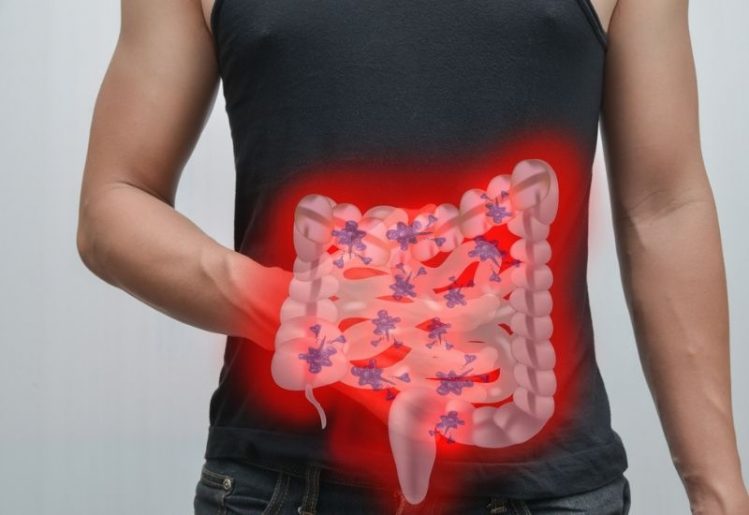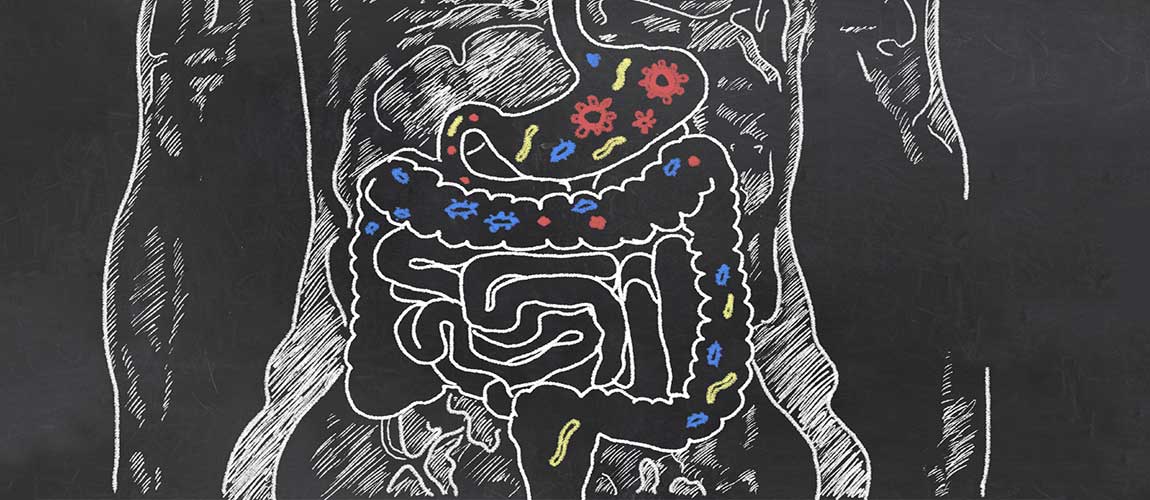Probiotics May Help Treat Inflammatory Bowel Disease
If you are dealing with discomfort in your gut or bowels, you may have heard that probiotics can help you to feel better. What are probiotics and how can these supplements treat inflammatory bowel disease (IBD) and other gut issues? New research is helping scientists to understand how probiotics may help treat inflammatory bowel disease and help maintain proper gut health. Here is what you need to know.
Understanding the Gut
 Your gut health is a complex issue that relates to many aspects of your well-being. Ultimately, the health of your gut relies on the proper function of your gut microbiome. This group of microorganisms living in your intestines directly influences a number of health issues, including digestion, the immune system, brain function, hormone levels, weight control and more. Although some of these microorganisms can be harmful to an individual's health, many of them provide significant benefits to the body. Maintaining proper gut health is vital to how you feel overall.
Your gut health is a complex issue that relates to many aspects of your well-being. Ultimately, the health of your gut relies on the proper function of your gut microbiome. This group of microorganisms living in your intestines directly influences a number of health issues, including digestion, the immune system, brain function, hormone levels, weight control and more. Although some of these microorganisms can be harmful to an individual's health, many of them provide significant benefits to the body. Maintaining proper gut health is vital to how you feel overall.
Signs of Poor Gut Health
It is not terribly difficult to figure out that your gut health may be suffering. In most cases, your gut lets you know when it is not being treated right. Most people begin to suspect that they need to be intentional about boosting gut health when they begin experiencing chronic stomach issues. This includes problems such as heartburn, gas, constipation, diarrhea and bloating. While isolated incidences of these problems are normal, their chronic occurrence may be a sign that your gut health needs a little bit of attention.
Other signs of poor gut health include disruptions to your usual sleep patterns, chronic fatigue, unintentional weight loss, the presence of autoimmune conditions, unexplained skin irritations and the emergence of food intolerances. All of these signs should be a warning that you need to give your gut a little TLC. You may be surprised at how these health issues resolve once you become intentional about taking care of your gut.
How Probiotics May Help Treat Inflammatory Bowel Disease
Those who suffer from IBD know all too well the uncomfortable and often debilitating symptoms that accompany this chronic health condition. New research recently published in The American Journal of Pathology details how the probiotic lactobacillus acidophilus (L. acidophilus), also known as LA1, may be a significant therapy model for a variety of intestinal disorders, including IBD.
The study examined how LA1 produces an enhancement of the function of the intestinal barrier that protects against potentially dangerous antigens. It is these antigens that are known to encourage the intestinal inflammation that contributes to the development of IBD. LA1 can protect the gut by restoring the natural intestinal barrier so that these antigens are not able to penetrate and cause damage.
The most promising aspect of this new research is that the data shows that LA1 is able to both prevent colonic inflammation formation as well as encourage the healing of the damaged barrier. This two-fold benefit may spell relief for many sufferers of IBD, as it suggests that probiotics may help treat inflammatory bowel disease.
How You Can Maintain Proper Gut Health
It is important to listen to your gut when it is trying to tell you that something is wrong. Here are a few ways that you can help to maintain proper gut health.
Probiotic Supplements
 As numerous studies have demonstrated, a probiotic supplement can be an invaluable tool in maintaining gut health. High quality prebiotic/probiotic supplements like Florachron work hard to support healthy intestinal flora in the gut while also boosting the body's defense system to encourage a healthier immune system.
As numerous studies have demonstrated, a probiotic supplement can be an invaluable tool in maintaining gut health. High quality prebiotic/probiotic supplements like Florachron work hard to support healthy intestinal flora in the gut while also boosting the body's defense system to encourage a healthier immune system.
Nourish Your Body
In addition to a probiotic supplement, you can further support good gut health by eating a diet that is rich in fruits, vegetables and fiber. There are also a number of foods that are naturally high in probiotics. These foods include yogurt, kefir, sauerkraut, kimchi and other types of fermented items.
Rest Up
As with nearly every health function, proper rest is key to key to optimal gut function. Adults should aim to get seven to eight hours of sleep per night.
Get Moving
One of the best things that you can do for your gut health is to maintain a healthy weight. You should target getting 45 minutes of moderate-intensity exercise five days per week for the best results.
Keep Stress in Check
Too much stress in your life will aggravate heartburn. Try practicing intentional mindfulness, meditation, or other relaxation techniques designed to reduce stress. As a bonus, you will also provide your mental and emotional health a boost.
Before you resign yourself to having to deal with the pain and discomfort of IBD and other intestinal issues, it is important to research all of these treatment studies. As a growing amount of research demonstrates, the use of probiotics can play a pivotal role in the prevention and treatment of various gut health conditions.





